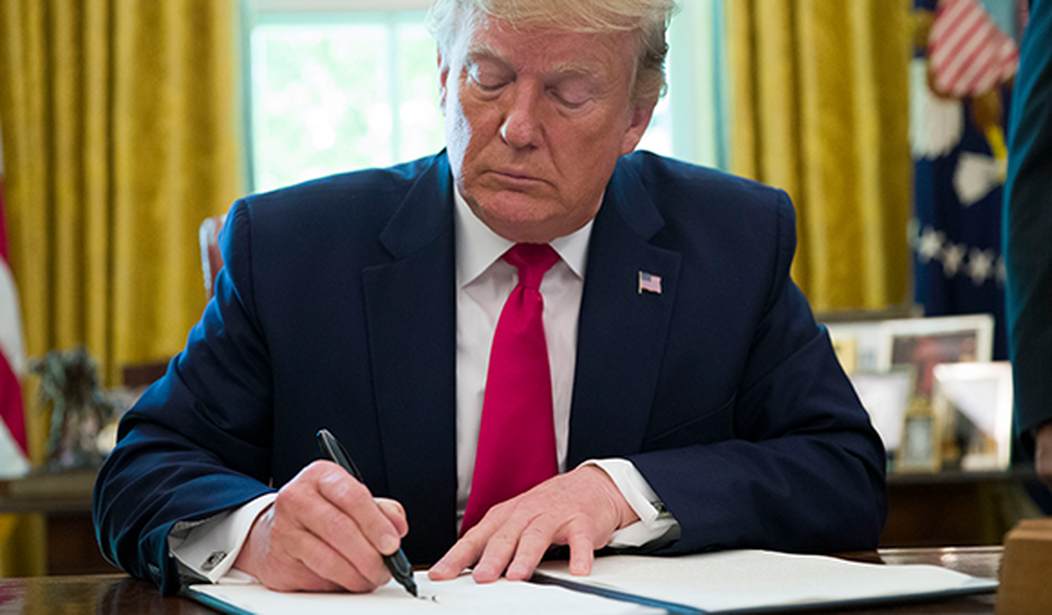On Friday, President Trump issued an executive order to implement what is known as the international pricing index (IPI) model for Medicare Part B drugs and biologicals. The ostensible goal of the executive order is to lower drug prices. This supposedly would be accomplished by pegging the price that the Medicare system pays for drugs to a level closer to the prices paid in a collection of other countries.
The IPI model represents bad public policy and poor negotiation: It abdicates all responsibility for market negotiation in favor of adopting the vagaries of foreign countries’ economic and pricing policies. The problem is that the comparison countries have warped prescription drug markets with socialist price controls.
In this year’s State of the Union Address, President Trump said, “We will never let socialism destroy American healthcare.” Yet the IPI model would be a step in that exact direction. President Trump should know that we can’t put America first by injecting lousy socialist ideas into our healthcare system.
The IPI model will do just that—injecting sweeping changes to the drug and biological supply chain that will have implications for manufacturers, distributors, group purchasing organizations, hospitals, and physician clinics, among others. The negative consequences of imposing the IPI model will certainly outweigh the benefits.
The IPI model will be imposed on a large share of physicians and hospitals nationwide. By extension, these providers’ patients will be forced to adhere to the price-controlled model, too. This will reduce reimbursement for these hospitals and physicians’ practices which could force many of them to close and consolidate with larger health systems, thus making healthcare less accessible.
Recommended
The IPI model will reduce the options available for doctors to offer their patients, thus undermining the overall quality of care. This is why many physician organizations have so vocally opposed the IPI model.
Of the 27 drugs the Trump administration itself has examined, only 41 percent were universally available in 16 comparison countries. Ninety-five percent of new cancer drugs are available in the United States. Only 55 percent in the comparison countries; and the average lag between the time cancer drugs are available in the U.S. compared to elsewhere is 17 months.
It should be obvious to any observer of global health care policy that socialist price controls are harmful to patients and will be harmful to the American economy.
Why would Americans want to be like those foreign countries where people suffer without proper medications and die early because they lack lifesaving medicines?
The best way to lower consumer drug prices is to encourage a competitive marketplace, not to impose more government intervention. Improving approval processes at the FDA would enable drugs to enter the marketplace faster. It currently takes a decade or more to receive FDA approval for new drugs and generics and costs billions of dollars to obtain the data necessary to do so. A more efficient FDA approval process would reduce costs for drug manufacturers, and thereby lower drug prices.
Particularly regarding biologic drugs like gene therapies, which are extraordinarily difficult to invent and exceptionally expensive to develop, the disincentives to development will likely result in vital drug therapies being unavailable—indeed undiscovered. In addition to providing life-saving drugs for patients, America’s competitive pricing structure has encouraged research and development and thus benefited universities and other research organizations that have worked to discover new drugs.
Protecting a competitive market for drugs is particularly important in encouraging the invention of new biologic pharmaceuticals and medical devices. The IPI model will disproportionately target treatments for complex conditions like cancer and rheumatoid arthritis that are often required to be administered by a physician.
The IPI model’s implications for revenue and R&D will create a disincentive both to develop new physician-administered drugs for patients with serious diseases and to develop competing drugs that would help the market function effectively. The IPI model will hurt the U.S. biopharma R&D ecosystem and push the R&D (and even soft power) to China and elsewhere.
American healthcare will suffer, becoming more like the healthcare in the countries to which drug prices are pegged. Ultimately, the Trump administration’s proposed IPI model will cost lives.
The long-term result of the IPI model will be to encourage a race to the bottom for the American healthcare system. It’s the wrong approach to addressing healthcare costs, and President Trump should rescind this executive order.
























Join the conversation as a VIP Member